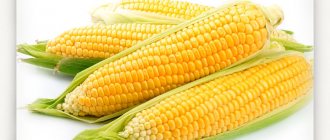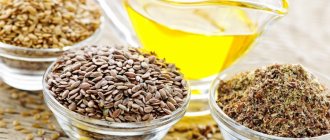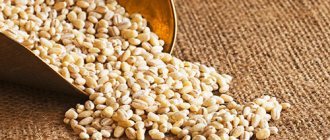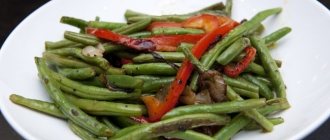Beets in the diet of a nursing mother are a “controversial” product. There is widespread concern because of the color of the root vegetable: will an allergy develop? The laxative effect on the body is also well known. Yes, and pediatricians disagree: some allow the use of the product (in small quantities, initially up to 50 g). Others advise removing this item from the diet until the child grows up.
No time to read? free list of allowed and prohibited foods during lactation
Can beets be consumed while breastfeeding?
Children's doctors assure that the root vegetable can be eaten when the baby is 2-3 months old. It is important to limit yourself to small portions - start with 50 grams of product. The root vegetable can be consumed boiled or baked.
The World Health Organization adheres to the same opinion. Feel free to add vegetables and fruits that grow in your mother’s climate zone to the menu. These should be seasonal gifts of nature that are not treated with special means for long-term storage (biphenyl (E230), sulfur oxide (E220), sorbic acid).
Need to remember:
- include in the diet for at least a month;
- raw root vegetables are prohibited - be sure to bake or boil them;
- after use, check 1-2 days to see if the baby has a rash;
- in case of a food reaction, exclude from the diet and introduce it from 6-7 months or later;
- Increase the serving size gradually.
Boiled beets for a nursing mother
The root vegetable is not eaten raw - heat treatment is necessary. This will get rid of radionuclides, xenobiotics and other harmful “additives”. When cooked using the main method (complete immersion in liquid), the vegetable loses some of its beneficial substances - they turn into a decoction. It takes 60-120 minutes to prepare.
When asked whether steamed root vegetables are allowed, pediatricians also answer in the affirmative. This is a more gentle way to preserve vitamins than cooking. A steamer pan with a tight-fitting lid is required. When boiling, the container is filled with steam, thanks to which the vegetable is cooked. The root vegetable is not exposed to too high temperatures (about 100C, whereas when baking it is 250-300C). Preparation takes from half an hour to 90 minutes.
Beet juice
Although this product is a kaleidoscope of vitamins, it must be consumed boiled or baked. Whether the vegetable is allowed in the form of juice, doctors' opinions vary. The point is about possible difficulties with the baby’s digestion. Unprocessed plant foods contain bacteria: they are not dangerous for an adult, but a small organism may not be able to handle the load. Heat treatment eliminates risks.
Another reason to hold off on juice is the additional burden on the body of a woman who has given birth. Stomach problems and low blood pressure may worsen. This effect is given by oxalic acid, which the root vegetable is supersaturated with.
Still want to drink beet juice? It is important to reduce its concentration - dilute it with water. The good news is that this drink is believed to stimulate milk production.
Benefits of beets
When asked whether beets are allowed for nursing mothers, nutritionists also answer positively. Experts emphasize: the product is rich in useful substances: vitamins, amino acids, macro- and microelements. With proper heat treatment, almost all of this is preserved.
How does eating boiled beets affect the body:
- improving the functioning of a woman’s heart and blood vessels;
- iodine supports the thyroid gland;
- weight loss is possible due to the low calorie content of the product;
- strengthening the immune system thanks to vitamins.
Beet composition
Root vegetables are a dietary product, because 100 g of root vegetables contain only 40 calories. And also - 1.5 g of protein and 8.8 carbohydrates. There are almost no fats - only 0.1 g. It contains a significant list of vitamins, macro- and microelements.
Vitamins and microelements contained in beets
The vegetable is rich in vitamins A, B, C, PP, carotene and betaine - there are especially many of them in young vegetables. Through milk, this “set” enters the child’s body, positively affecting development:
- A. Affects skin growth and renewal, strengthens the immune system.
- B. Promotes good functioning of the circulatory, central nervous and immune systems.
- C. Participates in redox processes, strengthens the body's resistance to extreme influences.
- RR. Improves redox processes.
The effect of beets on a nursing mother
The root vegetable is a suitable product for mommy. It's low in calories so you don't have to worry about gaining weight.
The root vegetable also has other advantages:
- fiber improves digestion - fermentation processes are eliminated, the stomach is cleansed, harmful substances are absorbed;
- stabilizes blood pressure in hypertension (thanks to magnesium);
- protects the nervous system;
- increases hemoglobin due to iron content;
- replenishes the need for nutrients, strengthens the immune system;
- helps solve a delicate problem after childbirth - bowel movement (due to stitches, the process is painful and unpleasant);
- the skeletal system is strengthened thanks to iron;
- folic acid improves brain activity.
But in some cases, to the question of whether it is allowed to eat a vegetable, the answer will be negative. Eating vegetables is contraindicated if you have problems with the stomach or blood pressure (lowers). The root vegetable can be harmful for diabetes mellitus (can cause a sharp jump in glucose), urolithiasis, and osteoporosis. Fresh juice can aggravate stomach problems.
Possible effect on the baby
Is it permissible to eat vegetables and will the baby be upset? This is the most common concern. Doctors reassure: only useful substances get into milk. In rare cases, the tummy may bother you; this is an individual feature. Moreover, after drinking beet milk, the baby suffers less from colic and gas.
Another experience for mothers is associated with an allergic reaction - the bright pigment of the root vegetable confuses them. After all, even hands and utensils turn red during the preparation of the product. But, as pediatricians note, the substances that color the root vegetable are hypoallergenic.
The root vegetable has a positive effect on the development of the baby:
- reduces gas formation and improves stool (but it is important not to get carried away with the product);
- promotes development - folic acid has a positive effect on the nervous system;
- the presence of iron improves blood composition.
Possible harm from eating beets
Beets are a healthy product, but you shouldn’t overuse them. Excessive consumption may cause diarrhea in women. If you have gastritis and other stomach problems, it is strictly forbidden to eat raw beets - they cause irritation. With hypotension, an additional decrease in pressure is possible and, as a result, vomiting, nausea, and dizziness. The product is prohibited for people with chronic diarrhea and urolithiasis.
Eating a raw product is dangerous for the baby. If heat treatment is neglected, the child may have digestive problems. Radionuclides, xenobiotics and other harmful substances remain in the root crop.
Pediatricians' opinion on the consumption of beets by nursing mothers
The famous pediatrician E. Komarovsky advises to diversify the diet as much as possible, giving up only foods with additives and preservatives. In his opinion, the root vegetable is useful for the mother already in the first month (if the body is healthy). But consume the root vegetable only after heat treatment.
Most experts share Komarovsky’s opinion, but still recommend waiting until the baby is 1-3 months old. According to gastroenterologist and pediatrician Olga Glushko, the root vegetable is useful during breastfeeding, but in limited quantities. There is much less risk when the child reaches 2-3 months. If there are no rashes, after a while you can move on to complex dishes - for example, beet caviar or beetroot soup.
Eating beets for lactostasis
Beetroot compresses are used as a salvation for lactososis. Using a grater, the vegetable is chopped and the prepared mass is wrapped in a gauze rag. The compress is applied to the chest, covered with a film on top and a bra is put on. The product is effective, but is rarely used due to the fact that the laundry gets dirty.
Beetroot for constipation in a newborn
It is widely believed that beet juice can help with childhood constipation. This is associated with an increased acid content in the root vegetable (laxative effect). But pediatricians do not welcome this approach due to the lack of heat treatment of the product. It is recommended to introduce beetroot “drink” no earlier than 8-9 months. However, experts assure: even boiled beets at 2 months (and later) help improve the baby’s digestion and relieve him of colic.
Will a red vegetable harm a baby?
Any conscientious mother, first of all, cares not about herself, but about the little man, whose health depends entirely on her. No matter how beneficial beets are, the dark burgundy color will alert every woman. Any red product - fruit, vegetable or berry - strictly prohibited during breastfeeding . Doctors do not clearly answer the question of whether beets are harmful to a baby in the first months of life. Some pediatricians talk about its dangers during lactation, and some, on the contrary, say that you should definitely eat beets.
Boiled beets are one of those rare exceptions when you can eat them while breastfeeding. The rich pigments that color the root vegetable burgundy-red are absolutely hypoallergenic , and a baby's red cheeks are more likely to appear from a yellow banana than from beets.
Another concern of a caring mother is the laxative effect. As you know, all foods eaten by a woman pass to the child through milk. And when mom ate something that upset her stomach, the baby will also suffer from upset.
But the doctors are reassuring here too. This vegetable affects the digestive system of the person who eats it. And metabolic elements penetrate into the milk and are not capable of causing frequent bowel movements in the infant. But there are exceptions when it comes to individual intolerance to a red product.
Rules for the use of beets by a nursing mother
Pediatricians identify several rules that a nursing mother must adhere to when consuming beets. It is unacceptable to eat the root vegetable raw, or drink it in juice form. It is preferable to steam the vegetable, because much less vitamins are retained when cooked in the traditional way and even less when baked.
When can beets be introduced into the diet of a nursing mother?
Some doctors (including E. Komarovsky) allow the addition of beets to the menu immediately after the birth of a child, but only after heat treatment. Provided that the parents are not predisposed to allergic reactions and the baby is not allergic. But most experts believe that it is better to introduce the product into the mother’s diet 2-3 months after birth. If a negative reaction occurs (rash or redness), you need to take a break for several months.
Beets for a nursing mother in the first month
In the first month, the mother has a limited choice of foods, and the body is not saturated with all the necessary substances. At the same time, it is necessary to recover from pregnancy. Vegetables allow you to diversify your diet, but not all pediatricians encourage this. It is worth consulting with your doctor whether it is allowed to consume boiled beets in a particular case during breastfeeding. The portion should be minimal - up to 50 g per day (up to two times a week). It is still advisable to hold off on using the product for the first 7-10 days. The root vegetable in its raw form is definitely prohibited in the first month.
Consumption of beets in subsequent months
From 1-2 months they add it carefully, and more boldly - from 3 months. It is recommended to start with 50 grams, and increase the portion by 20 grams with each meal. It is necessary to control how the child’s body reacts to nutrition. If everything is in order, after a few months you are allowed to eat up to 200 g of beets per day.
How to properly introduce beets into your diet
In order for the baby’s body to easily adapt to beets, you need to follow some rules:
- You need to start with small portions - up to 50 grams;
- After 1-2 days, evaluate the reaction of the child’s body - whether there are any rashes or redness;
- You can add up to 20 g of product with each meal (if there are no allergies or rashes);
- At first you can eat up to 2 times a week, later – 3-4 times;
- Carefully choose foods that are consumed with root vegetables.
Rules for choosing beets for a nursing mother
There will be more benefits if you carefully select root vegetables - mold, softness, and signs of spoilage are unacceptable. Large root vegetables are considered fodder, so miniature or medium-sized vegetables are preferable (they are juicier). It is advisable that the root crop be without tops, since they absorb some of the moisture.
What's the best way to cook beets?
You can prepare the root vegetable in several ways: boil it in water (fill it completely with water or 2/3 full), stew it, bake it. But the best way is to steam it (this way the bulk of the nutrients are preserved). It is good both as an independent dish and in combination with other products. Frying is prohibited during breastfeeding. You can eat the root vegetable raw only 6-8 months after birth.
Contraindications to the use of beets during breastfeeding
Any food may have contraindications for consumption, and beets are no exception. It should not be eaten in the following cases:
- The occurrence of an allergic reaction in a woman or child. In this case, beets are classified as potentially dangerous products and are completely excluded from the diet.
- Chronic diseases of the digestive system. Beets can cause exacerbation of pathologies. However, a properly prepared product is still allowed for consumption, but only after consulting a doctor.
- Tendency to urolithiasis. In people with a hereditary predisposition, beets may contribute to the formation of kidney stones.
- Child's diathesis. In this case, as with allergies, beets are considered potentially dangerous products and are excluded from the diet.
- Regular problems with indigestion in a child. Beets can provoke their occurrence, so they are excluded from the diet in any form.
Every woman and her baby's body is unique, and beets may affect them differently. After consulting with a doctor, you can gradually introduce the product into the menu, observing the baby’s reaction. If he feels well, there is no reason to worry
It is important not to get carried away with the amount of root vegetables in the diet, then no problems will arise during lactation
The best beetroot recipes for a young mother
A simple solution is boiled beet salad. The vegetable is chopped (on a grater or using a blender), vegetable oil or sour cream is added. The following ingredients are suitable for preparing a more complex salad: boiled chicken, carrots, dried apricots.
There is another delicious option - baked root vegetables. The product is washed under water and wrapped in foil, each vegetable separately. Cook at a temperature of 180-200 C. After 40-60 minutes, the dish can be served.
If there are no rashes or allergies, you can use complex recipes. One of them is caviar. You will need a large root vegetable, oil (a tablespoon), lemon juice (half a teaspoon), salt and sugar. The root vegetable needs to be boiled and finely grated. The ingredients are mixed and placed in a frying pan, simmer for 15-20 minutes.
You can also cook beetroot soup. You will need 1 root vegetable, 300 g of meat, potatoes (2 pieces), vegetable oil (tablespoon), herbs and sour cream. You need to cook the meat broth and boil the beets separately. Potatoes (straws) and butter are added to the broth. Five minutes before the potatoes are ready, chopped beets are added to the dish. Served with herbs and sour cream.
Reviews from nursing mothers about eating beets
Many mothers mention that they feed beets even in the maternity hospital. “We were given borscht, and everything was fine,” notes one of them. “First you can try a little, see the reaction and then decide.” Some pediatricians have no doubt whether it is possible for a nursing mother to eat boiled beets - they even recommend adding the product to the diet in combination with sour cream if the newborn has constipation.
According to reviews, rashes do occur, but they are rare. Much more often, mothers share similar comments on the forum: “I constantly eat beets after being discharged. A product that is useful in all respects.”
Beets for a nursing mother are an acceptable product if they are prepared correctly and included in the diet 2-3 months after the birth of the child. You need to carefully monitor whether the new ingredient will cause an allergy (rash, redness). If there is no reaction, after a while you can look for more complex recipes using beets.
Delicious beetroot salad “Riddle” for mothers with breastfeeding
Ingredients
- Boiled beets – 2 pcs.;
- Boiled eggs – 2 pcs.;
- Hard cheese – 50 g;
- Green peas – 4 tbsp. l.;
- Sour cream – 50-70 g;
- Greens, salt, garlic (optional).
Preparation
- Grate the cooled beets, eggs and cheese on a coarse grater.
- Place in a salad bowl, add peas, a little salt, herbs, chopped garlic.
- Add a few spoons of sour cream. Mix everything. You can try it!











